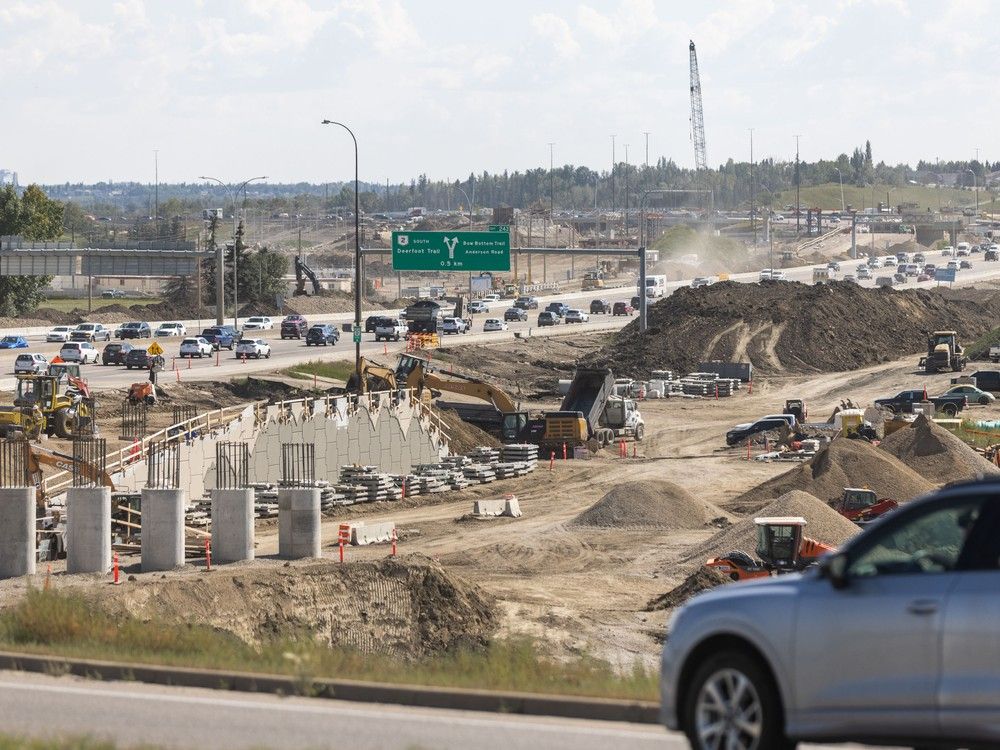Deerfoot construction: Added lanes, new bridges promise traffic relief

The transformation of Deerfoot Trail in Calgary is well underway, with construction crews working tirelessly to improve the busiest freeway in Alberta. The upgrades are aimed at reducing congestion and improving commute times for the nearly 200,000 vehicles that travel on Deerfoot Trail daily.
The extensive project, which began in 2023, has already seen significant progress in the northern half of the freeway. The focus has now shifted to the southern portion, from Glenmore Trail to the Ivor Strong Bridge. Minister of Transportation and Economic Corridors, Devin Dreeshen, anticipates that lanes near McKnight Boulevard and 16th Avenue N.E. will provide relief for commuters this fall. The addition of a merge lane and freeway expansion to four lanes in each direction is expected to significantly reduce commute times during rush hours.
The overall project is projected to save Calgary commuters about 900,000 hours annually and boost the economy by $23 million per year. However, some experts warn that freeway expansion projects may only provide temporary relief from congestion. Tim Haney, a sociology professor at Mount Royal University, suggests that induced demand could lead to increased traffic volume in the long run.
Despite potential challenges, the improvements to Deerfoot Trail are a step in the right direction to address current congestion issues. The project includes twinning bridges, reconfiguring interchanges, and adding lanes to alleviate chokepoints. As construction continues, drivers are advised to watch for reduced speed limits and lane closures.
While the upgrades to Deerfoot Trail may provide immediate benefits, long-term solutions such as investing in public transit infrastructure could help address future congestion issues. As Calgary continues to grow, it will be important to prioritize sustainable transportation options to ensure a smoother commute for all residents.




